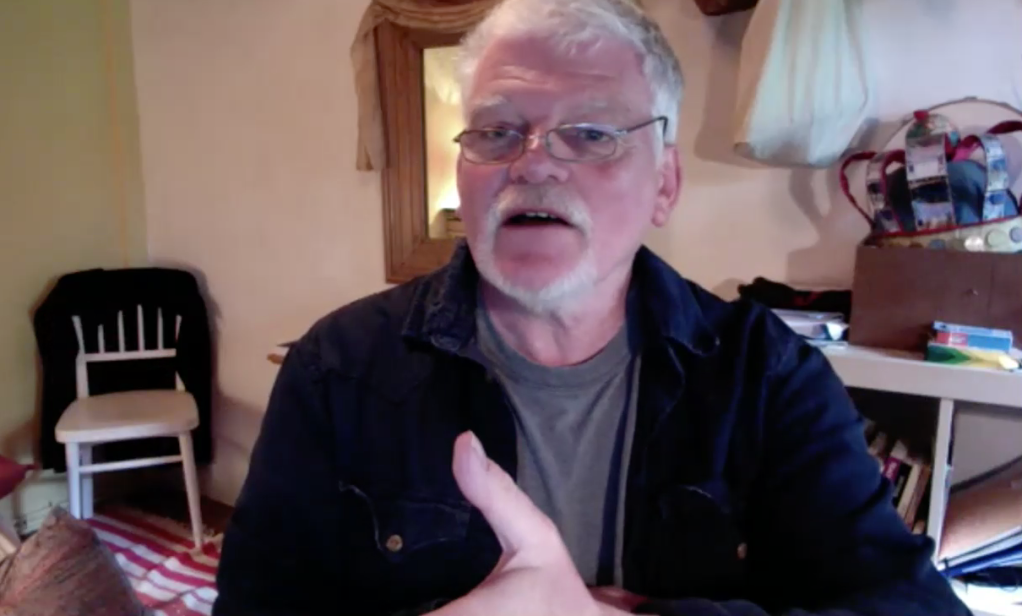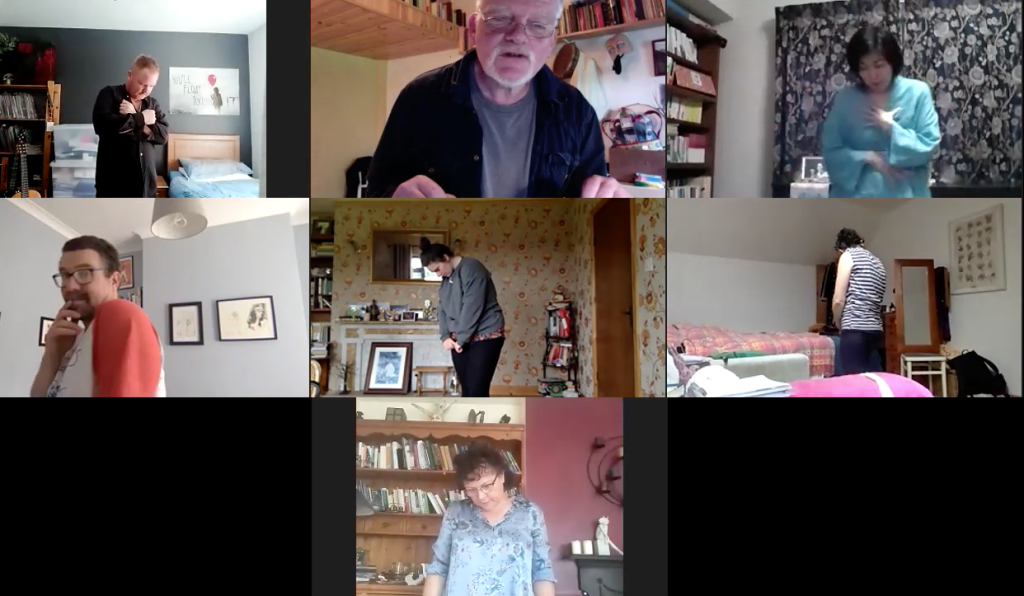I used to teach private sessions a lot. For years, troupes of young people trying to get into drama school would come for help. Drama schools said they only wanted ‘raw talent’ and not pieces that had been prepared but this of course is rubbish…… Actors are directed, after all. It was rewarding, helping people follow their dreams and help them to open the next door, as someone had done for me.
I have returned to teaching Chekhov Technique and voice one to one online, mostly not for auditions but for people to develop, hone and explore their skills and potential. It is great for people to remember that acting is an art form not just something for ‘the business’.

Teaching one-to-one is an extraordinarily intense experience for me. It is as if there is a stream of energy , a radiating and receiving between you even through the technology. It involves a huge amount of focus and concentration but it is incredibly rewarding. The monitor in some ways actually emphasises the focus as if you are looking into a tunnel of light which can fly worldwide zooming down on another room perhaps thousands of miles away. That’s kind of magical BUT the danger is that we succumb to this imaginary idea too fully and stay too stuck to the monitor and worst of all, do nothing but discuss when we are meant to practise. It is as if it sucks us down, like Alice, into the rabbit hole!

Getting people to ignore the monitor and prevent them being like specimens before you, rather than the living breathing things they are, is another issue. It is the conditioning we have before the camera I think, but I often say, “Feel free to move around , I do not need to see you do this, I want you to experience it.” Part of the trick is to make sure they arrange their room as best they can, giving them as much room as possible. With group classes I sometimes let people occasionally turn off the monitor altogether, but with one-to-one sessions I never do because I feel we need to keep the visual connection.
Teaching one-to-one gives you space to tailor make your teaching to the student in a way it is impossible to do within a group, to teach the elements in a certain way, finding which might be the right path for the individual. For instance whilst Imagination and Body are the main tools for the Chekhov work, some people find the Imagination difficult, or, if they are tense or less in touch with the body, they find it very hard to get into the work that way. Different individuals need different starting points. Being online presents the opportunities and challenges I have already discussed in earlier posts, but there is something very personal about it. This is very paradoxical in a way. The distance creates closeness. not everyone feels this way but those who buy in to the online experience do experience it.
In warm ups, I always lead and do the first exercises with the student. I have been told it is reassuring, that the student does not feel as ‘on the spot’ . It also helps to connect me with the student which is even more important when they are perhaps in another country.
Because there is only one student, I find I need to develop an even stronger sensitivity to their mood or living situation (I am probably ‘in their house’ as it is) . Pets and children may come in or awkward flat mates or relatives might make things challenging. They will be uncomfortable when those things happen. I have to be very very cool and easy about it, relaxed but at the same time hold the line because any interruption flusters them rather than me.
And every journey is different, teaching the Chekhov work. It is gratifying. Someone I taught online got into a course recently, people are exploring their art, developing themselves and remembering that life is not just Covid, Trump, and Brexit and I am helping them remember that. I do not want to create a distraction from the real world but to remind them that it is not everything. I hopefully am enabling them to transform so they can tackle the ‘real world’ more robustly.
If you want to discuss developing your acting through the Chekhov work online please email chekhovtpi@gmail.com


